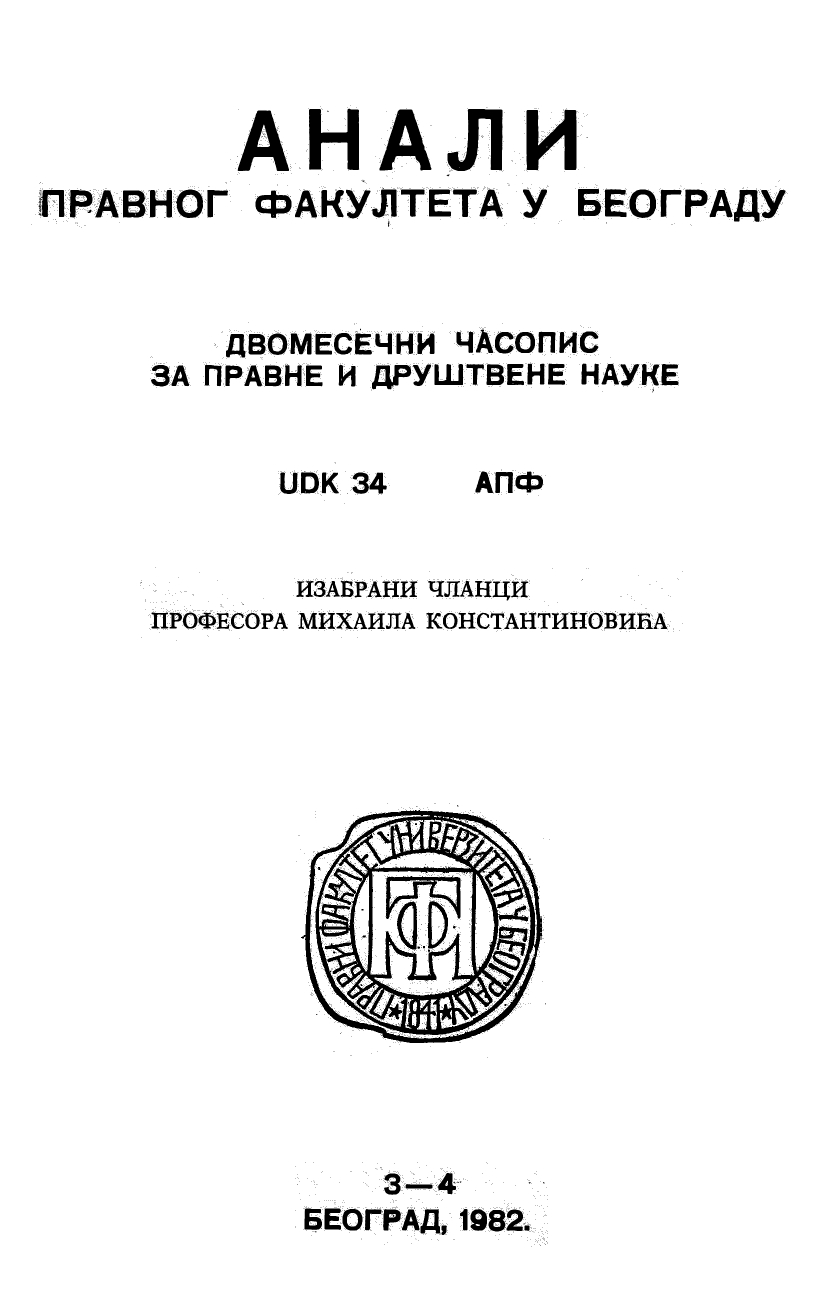ЗАБРАНА ЗЛОУПОТРЕБЕ ПРАВА И СОЦИЈАЛИЗАЦИЈА ПРАВА
PROHIBITION OF ABUSE OF RIGHTS AND THE SOCIALIZATION OF RIGHTS
Author(s): Mihailo KonstantinovićSubject(s): Law, Constitution, Jurisprudence
Published by: Правни факултет Универзитета у Београду
Summary/Abstract: The prohibition of the abuse of rights means that accountable for damages is each and every party exercising its rights solely for the sake of malice toward the party suffering the damage, and the party which has exercised its rights without ill intent, but in an abnormal manner, thereby inflicting damage to the other party, preventing that party to exercise its rights in a normal way. The theory of abuse of rights is completely in line with the individualistic doctrine, according to which the role of the State is to ensure to each person the security of performing his or her activities at will. It does not demand that the individual sacrifice a part of his rights in favour of the community, but only that each individual is free in exercising his own rights; this demand does not rely on the fact of social solidarity but simply on the fact of coexistence of people with a view to the enabling of the performance of rights of all individuals. The guarantee for their peaceful exercise is only enhanced by the prohibition of abuse. According to the Yugoslav Constitution of 1921, the exercise of ownership „must not be to the detriment of the totality (Atricle 37). This provision exceeds the scope of functioning of the principle of the prohibition of abuse of rights; by protecting the interests of the totality, the Constitution strives toward the socialization of rights. In contrast to the legislatures inspired by individualism, which are not compelled to accept the principle of prohibition of abuse of rights, the legislatures inspired by solidarity cannot by any means be conceived without the prohibition of the abuse of rights. Calling on the legislator to organise ownership in such a way that its utilisation shall not inflict damage to the interests of the totality, the creator of the Constitution has by doing so prohibited its abnormal and malicious utilisation. For this principle to be effective in Yugoslav Law after the Constitution of 1921. it was not necessary to pass a special law repeating it, the Constitution was sufficient. The prohibition provided by the Article 37. of the Constitution of 1921. should be; expanded to all other rights: if the abuse of the most egoistic and the most absolute right is prohibited, and such is the right of ’ownership, then this prohibition can all the more be applied to the rights with a more altruistic character (and with less egoistic characteristics).
Journal: Анали Правног факултета у Београду
- Issue Year: 30/1982
- Issue No: 3-4
- Page Range: 261-281
- Page Count: 21
- Language: Serbian

